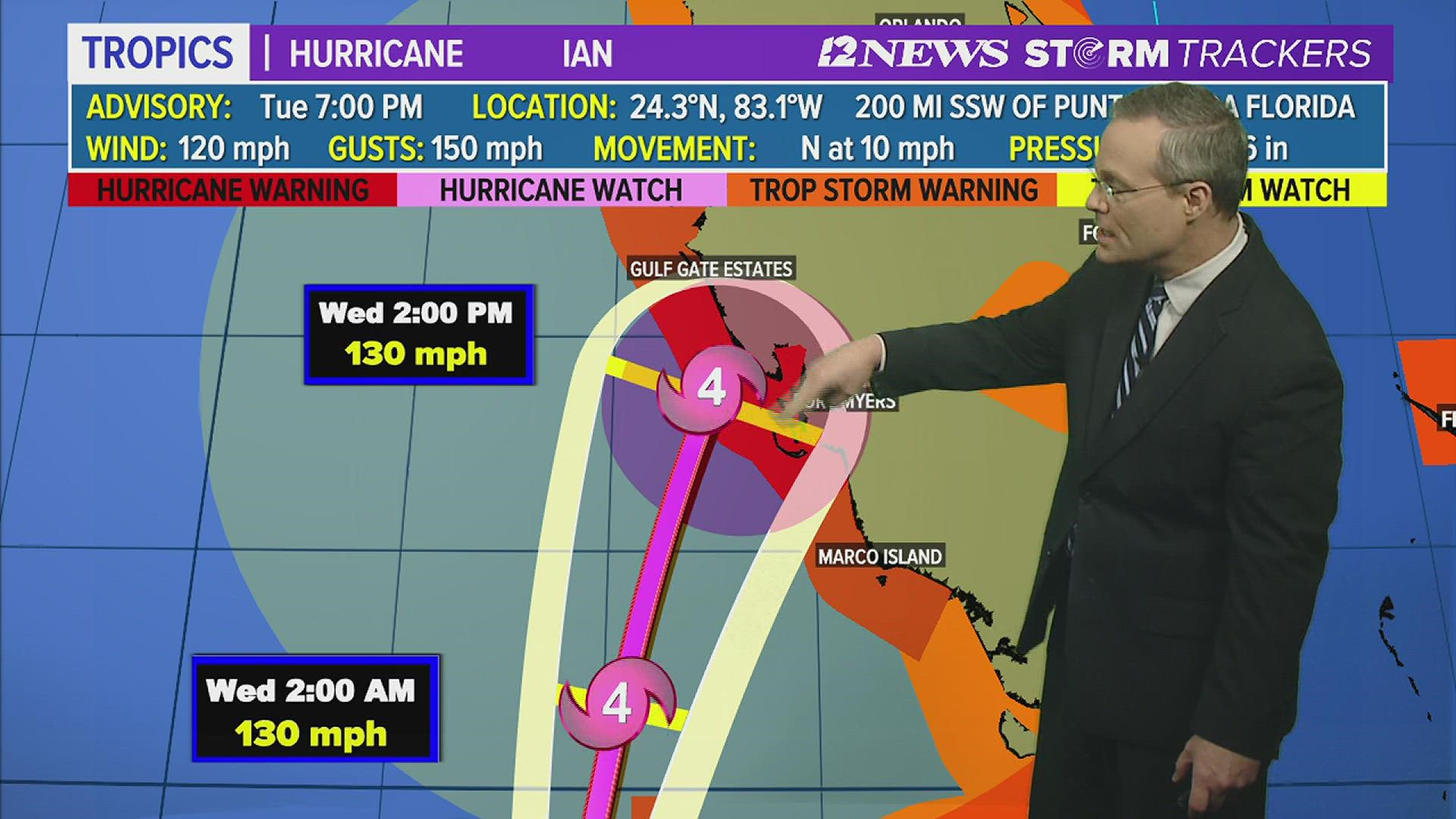BEAUMONT, Texas — Hurricane Ian is expected to continue its rapid intensification and become a Category 4 storm over night.
Ian has winds of 120 mph and is 100 miles to southwest of Key West, Florida. The hurricane is moving north at 10 mph.
The storm expected to strengthen and then slowly weaken as it approaches the Gulf of Mexico late Wednesday night between Fort Myers and Tampa, Florida.
The hurricane is not a threat to Southeast Texas.

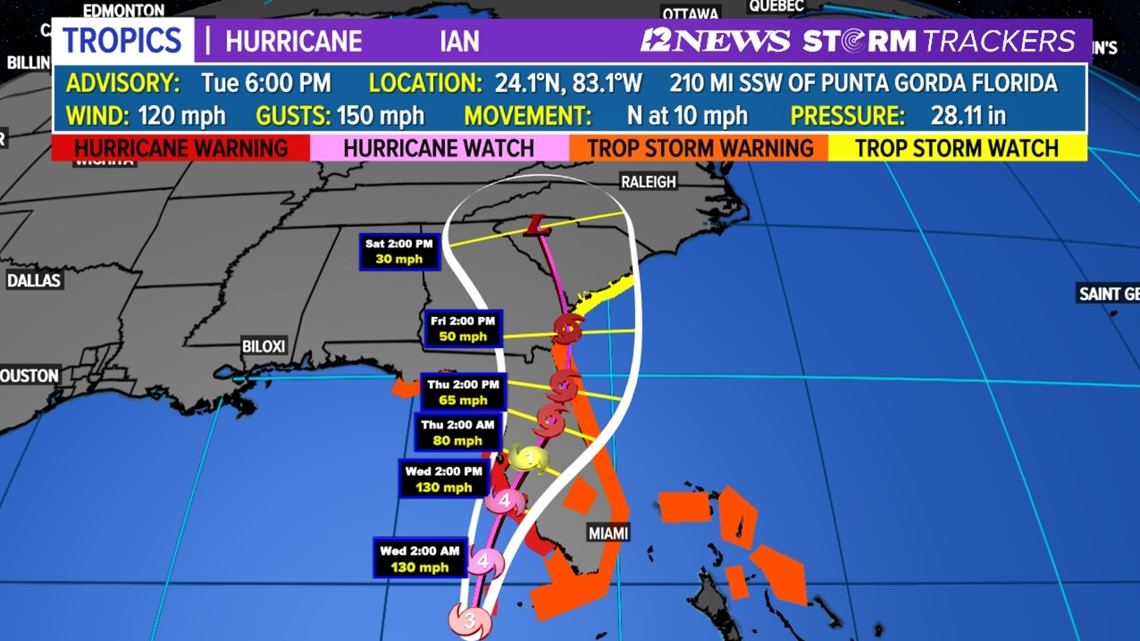
Right now there are no tropical impacts expected for Louisiana and Mississippi aside from swells off the coast next week and a north wind Wednesday through Friday. We'll continue tracking it closely, but even if the path shifts a little farther west, our local area would still be on the drier and less intense side of the storm's center.

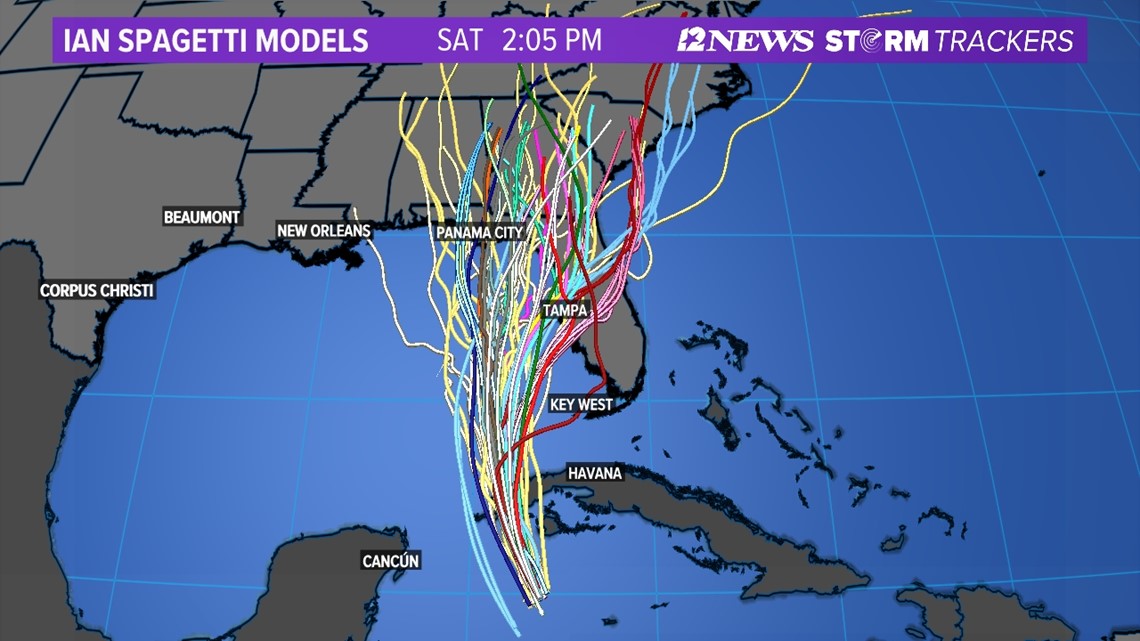
Elsewhere in the Atlantic, one far-off tropical wave has a high chance of development, but it is drifting northward and is on track to stay out at sea. the next name on the list is Julia.
2022 Hurricane Season Outlook
The 2022 Hurricane season is expected to be more active than normal with a projected 19 named storms—9 of which are forecasted to be hurricanes, 4 of them major hurricanes (Cat 3+).
On average we see around 14 named storms each season -- 7 of which are hurricanes, 3 of them major hurricanes.
According to the outlook from the Colorado State University Tropical Meteorology Project this is the case because of a couple different factors, namely the absence of an El Niño.

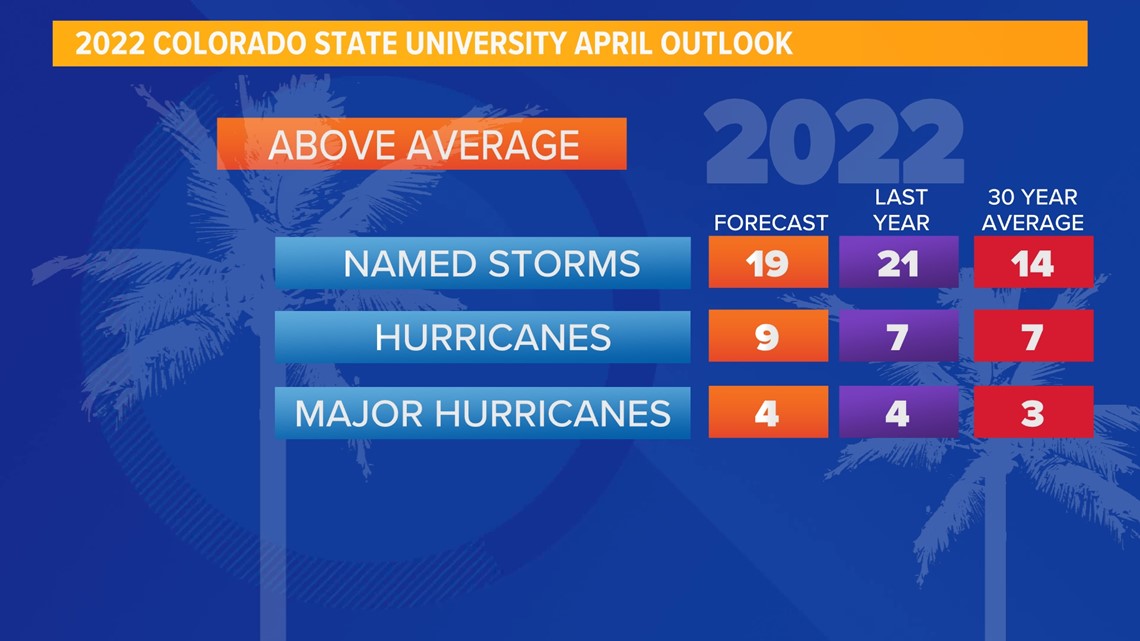
We are currently under a La Niña phase. As of now, it hasn’t had much impact on the eastern and central tropical Atlantic sea surface temperatures, which remain near average. However, we are expecting to have a weak La Niña or a neutral phase remain in place, which would favor warming.
In addition to that, the Caribbean and subtropical Atlantic sea surface temperatures are running warmer than normal too. Wind shear is still expected to be lower than normal and for that season, development and livelihood of hurricanes this season is expected to be more favorable. Warm water is the fuel and weak wind protects the hurricanes from ripping apart too quickly.
Last year, we had 21 named storms, 7 of which were hurricanes and 4 that were major (Cat 3+). This season is expected to be fairly similar. Hurricane season starts June 1st and ends November 30th.
The World Meteorological Organization announced in 2021 the Greek alphabet will not be used in the future because it "creates a distraction from the communication of hazard and storm warnings and is potentially confusing."

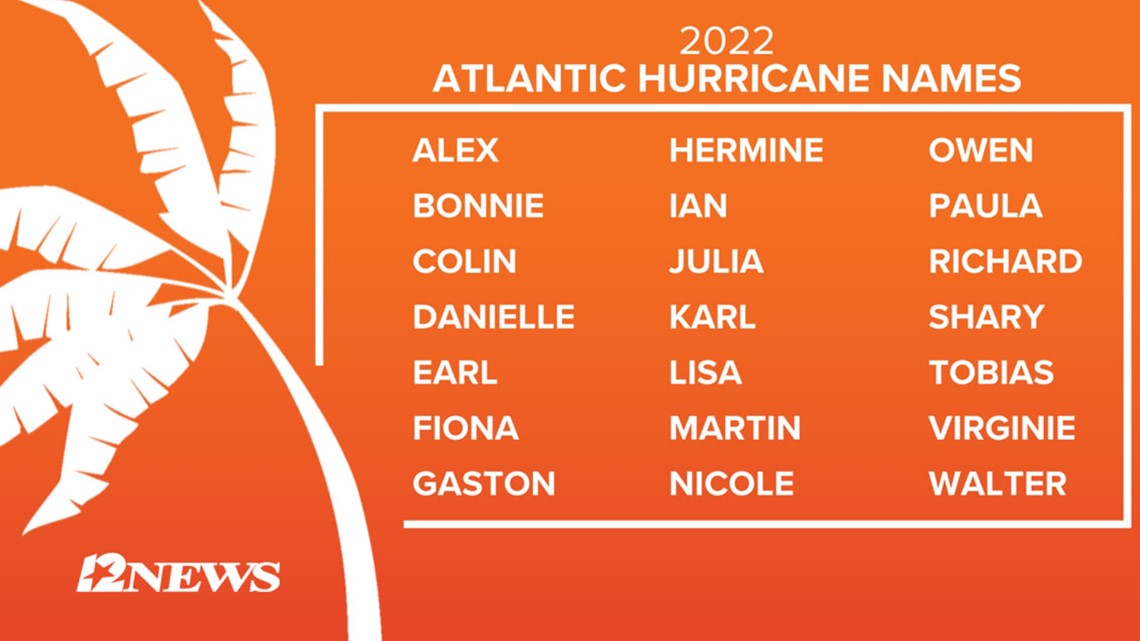
There has been only one other season that used the extra set of names, and that was in 2005. The World Meteorological Organization released a new set of supplemental names that will be used if the season exhausts the standard list.

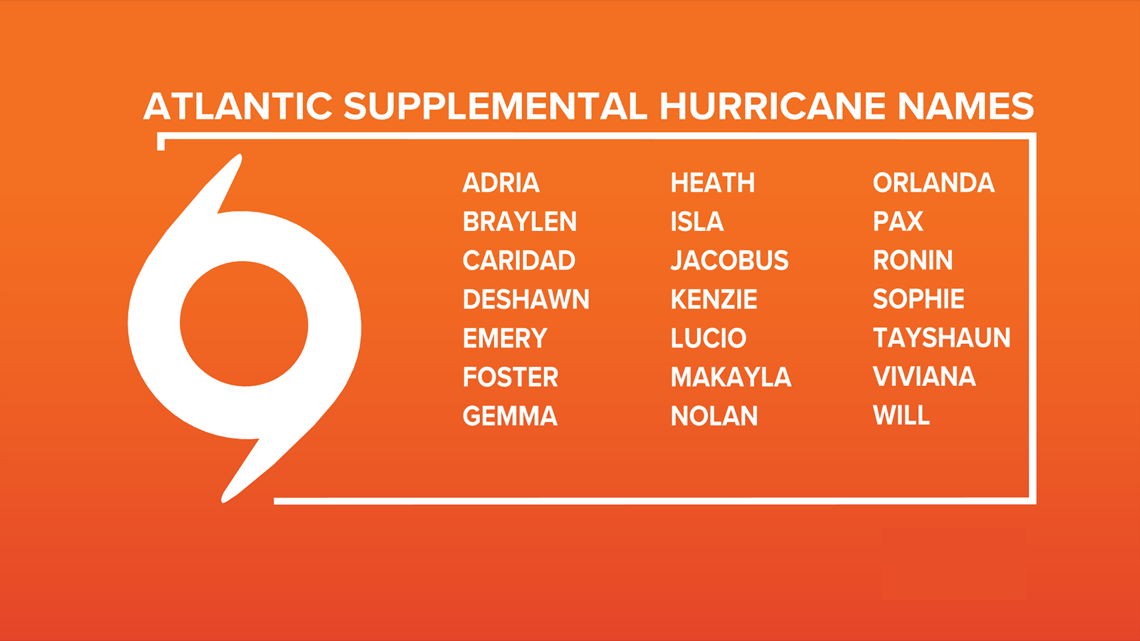
Be prepared if a storm comes our way
BEFORE THE STORM
- Make a home inventory
- Have a current copy of your declarations page that has your policy number and your agent's number
- Review your policy with your insurance agent to determine if you have adequate coverage
- Repair loose boards, shingles, shutters and downspouts to prevent them from becoming an issue in high winds or torrential rain
- Have an evacuation plan, and include plans for your pets
- Make sure your emergency equipment is in working order, including a battery-powered radio, flashlights and extra batteries. Also, make sure to gather all medicine, replenish your first-aid kit and stock a week's worth of non-perishable food and water
- Charge your cell phone and fill your car with gas
- Program all emergency phone numbers
DURING THE STORM
- If you are advised to evacuate, leave as soon as possible. Retain all related receipts - they may be considered in your claim. If you aren't in a recommended evacuation and you plant to stay home, stay informed by listening to weather alerts
- Keep windows and doors closed at all time, and, if possible, board them up with wooden or metal shutters
- Stay away from the windows and in the center of the room, or, stay in an interior room
- Avoid flood water, as it may be electrically charged from downed power lines
- Check on family members and friends
AFTER THE STORM
- Check to be sure your family members are safe
- If you did evacuate, wait for official notice that it is safe to re-enter your neighborhood and your house
- Document damaged property, and take photos and videos. Don't dispose of any damaged items without approval
- Keep a record of any temporary repairs or expenses to prevent further damage to your property.
GET NEWS & WEATHER ALERTS | Download the 12News App to your mobile device

